
The Free Press

Even as a child, Zoraya ter Beek had a persistent wish to die. Growing up in the quaint Dutch town of Oldenzaal, she never felt as if she fit in. At the age of 21, she was diagnosed with autism; a year later, she started wearing a “Do Not Resuscitate” tag around her neck. Last Wednesday, her wish was finally granted: after a three-year wait, Zoraya ended her life through physician-assisted suicide. She had just turned 29.
I got to know Zoraya while investigating the “right-to-die” movement sweeping the West, for a story published in The Free Press on April 1. When I first started speaking to her, she was awaiting final approval for euthanasia, which is legal in the Netherlands if the patient is deemed to be experiencing “unbearable suffering with no prospect of improvement.”
“For me, autism is the major hiccup in my life. That bothers me the most,” Zoraya told me. As a child she was bullied a lot at school. She took to dressing as a goth to make herself seem scarier.
“The whole black look looked right, because that is how I felt on the inside,” she said.
Zoraya’s sense of humor could be dark. She struggled with mental illness: depression, anxiety, and an unspecified personality disorder. But during our conversations—which took place over the course of a month, on the phone and on WhatsApp—she came across as an intelligent, articulate, and confident young woman.
Zoraya received little or no support from her family. When she turned 18, she moved out of her childhood home to live with her boyfriend, Stein. He was ten years older than her, and her parents didn’t approve of the age difference. When I first contacted her, Zoraya had been estranged from her mother and three older sisters for six years. Her father died last year from cancer.
As a young adult, Zoraya felt unable to study, or embark on a career. She told me Stein, who is an IT programmer, was worried about how she felt, and encouraged her to get therapy. Over the course of a decade, she tried everything to relieve the symptoms of her mental illness—including, at last, 33 rounds of electroconvulsive therapy, where electric currents jolt the brain.
Zoraya’s last treatment was in August 2020, after which she says her psychiatrist told her: “There’s nothing more we can do for you. It’s never going to get any better.”
“After we heard that, we all kind of knew what that meant,” Zoraya told me, referring not only to herself but her boyfriend, her friends, and her doctors. “I was always very clear: if it doesn’t get better, I can’t do this.”
That’s when she decided she wanted to apply to die.
Zoraya submitted her application to the Netherlands’ Euthanasia Expertise Center in December 2020. The waiting list was long, but by the time I spoke to her, Zoraya was fairly confident she would get final approval. She seemed to feel a sense of accomplishment—and gratitude to those who had helped her. “My whole friends and my support system, we really did it together.”
Zoraya wanted to support others in making the same decision as her. She saw herself as an advocate, almost an ambassador, for the Dutch euthanasia regime. (And that’s how she’s being portrayed in some quarters of the Dutch media, too.) She was firmly convinced that the Dutch state had put in place all the necessary safeguards to prevent the system from being abused.
“I have faith in the law,” Zoraya said.
Some right-to-die advocates in the Netherlands argue that the law should be updated, to allow people to seek assisted dying without prior medical intervention—or the approval of the state. One advocacy group, Coöperatie Laatste Wil or Last Wish Cooperative, wants to make “suicide kits” widely available as a humane way to die—for those who are waiting for, or have been denied, state-sanctioned euthanasia.
Zoraya was against this.
“I’m pro-death. But we need to be careful to protect people who’re in psychosis or depressed and not thinking straight,” she told me.
“If you go on the suicide kit road, you don’t know if somebody, maybe with the right help, could have chosen to live,” Zoraya said.
Zoraya’s best friend committed suicide at the age of 16 by jumping in front of a train. She, like Zoraya, had been bullied at school, and had been battling depression and anxiety. But, perhaps with some intervention, Zoraya thought, her friend might have been persuaded not to commit suicide.
Couldn’t the same be said of her? I asked. Couldn’t it be argued that her decision to end her life was her depression talking?
“That’s the beauty, because our law requires that doctors test that you’ve made a rational decision,” Zoraya replied. “Doctors have to test: Is my choice rational, or is it my illness talking?”
Earlier this month, she told The Guardian: “People think that when you’re mentally ill, you can’t think straight, which is insulting.”
“In the Netherlands,” she added, “we’ve had this law for more than 20 years. There are really strict rules, and it’s really safe.”
Zoraya had great faith in not only the law but also the medical profession.
“Doctors want to help people feel better,” she told me. “Doctors don’t become doctors to kill people, even if that’s what you’re wishing for.”
Nevertheless, Zoraya had a plan B—or, as she called it, an “escape plan”—in case her application didn’t get final approval. It was a suicide kit, which she told me she’d obtained from Exit International, an NGO that advocates for the legalization of voluntary euthanasia.
In the end, she didn’t need it. Zoraya had hoped to be euthanized on her birthday, May 2. But there had been some last-minute bureaucratic delays. Nevertheless, her assisted suicide was approved a couple of weeks ago.
The news has resonated with people who have experienced struggles similar to Zoraya’s. “This broke a part of me,” said one person on Reddit, who often posts about having suicidal thoughts. “What if getting better is not possible. What if I should just die today?”
Another poster wrote: “this has left me terrified cuz I’m autistic myself and I’m scared. . . my brain is thinking, ‘is it going to be a guaranteed ending for me and other autistic women? I don’t want that, though! I like my life. . . this is scary!’ ”
The fact is an increasing number of people suffering from mental illness in the Netherlands are choosing to end their lives. Zoraya is right that the assisted dying law has been around for years, but even as recently as 2010, there were only two recorded cases of medically assisted suicide that involved psychiatric suffering. Last year, there were 138.
I told Zoraya more than once that I understood her suffering, but hoped she wouldn’t go through with her decision to kill herself. It was hard to hear the news that she had died—that the society in which she lived had given up on a young person who had so much to live for and so many years ahead.
Zoraya told me she didn’t want a funeral, because she didn’t think her friends would want to say goodbye. But she did want her boyfriend to be with her at the end. When I spoke to her, she described how she wanted to die:
I will take my place on the couch. [The doctor] will once again ask if I am sure, and she will start up the procedure and wish me a good journey. Or, in my case, a nice nap, because I hate it if people say, “Safe journey.” I’m not going anywhere.
On Wednesday, a friend of hers posted an announcement on X: “Zoraya passed away today at 1:25 p.m. Or as she saw it herself: she went to sleep.”
Few details of her death have been reported—except that her boyfriend was at her side.
Rupa Subramanya is a reporter for The Free Press. Follow her on X @rupasubramanya, and read her first report on Zoraya ter Beek, “I’m 28. And I’m Scheduled to Die in May.”
Serious investigations about serious subjects take time and investment. To support this work, become a Free Press subscriber today:


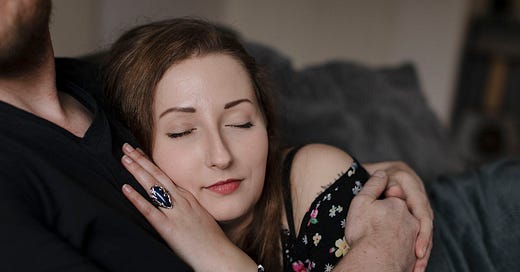




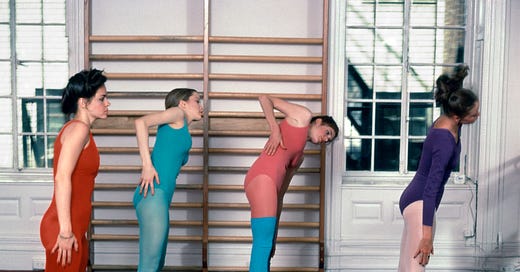
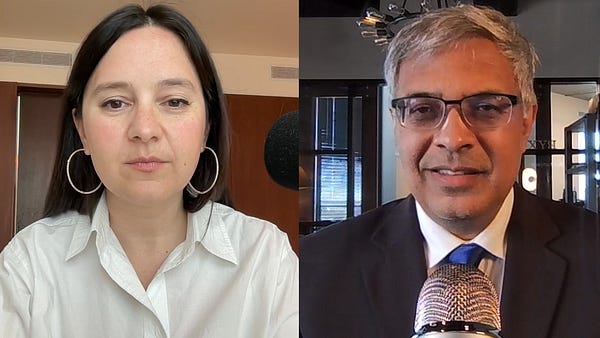


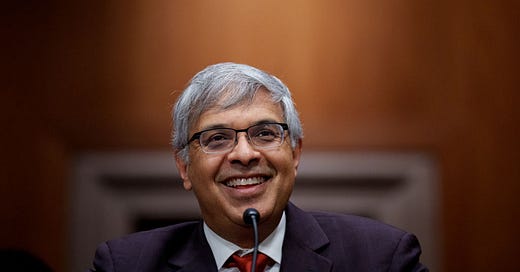
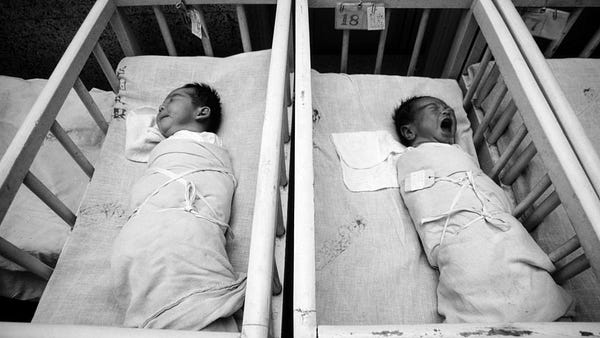

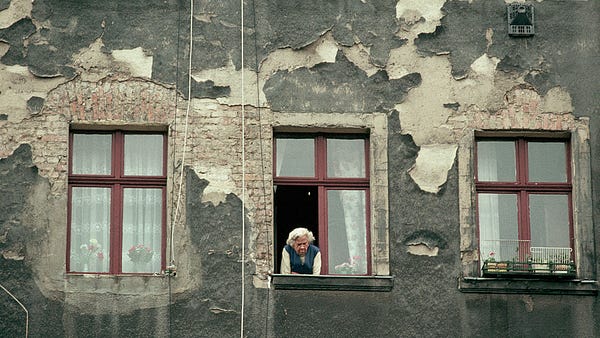

The part of this article that is most disconcerting apart from the suicide aspect is the mention that she was diagnosed with autism at age 21.
One the two core characteristics in autism is challenges in social communication and interaction skills alongside restrictive and repetitive behaviors. Autistics struggle with restrictive thinking patterns. For those with Asperger’s /Level 1 this restrictive thinking can present differently leading the person to get stuck in a thought loop or pattern that can be devastating. A coexisting condition with Asperger’s/Autism Spectrum Disorders is anxiety and depression. The anxiety is aggravated tremendously by having to navigate a neuro-typical world that can be cruel but also difficult to understand as their brain processes the environment differently.
Zoraya was diagnosed at the age of 21 which is not uncommon for girls with autism also extremely tragic. Very common for autistics with late diagnosis to have mental health issues. They have navigated life without a tool box for coping with autistic symptoms and meeting the needs that result from these symptoms. Zoraya seemed to have Asperger’s which is level 1 autism. Girls do not get diagnosed as often as boys with autism because they present very differently and they can camouflage their symptoms in ways that boys don’t.
This is the first tragedy regarding Zoraya she missed out on at least 18 years of interventions that could of helped her understand, cope and better meet her needs. I own a Center that provides interventions for autistics. It seems from the little information in the article that she was seeking help but was told there was no hope for her. She also had no family support. This affirmed her already restricted thoughts on coping with her condition. Zoraya could have been helped to manage her anxiety and depression. She could of also benefited from cognitive behavioral therapy.
Cognitive behavioral therapy (CBT) is a type of psychotherapeutic treatment that helps people learn how to identify and change the destructive or disturbing thought patterns that have a negative influence on their behavior and emotions.1Cognitive behavioral therapy combines cognitive therapy with behavior therapy by identifying maladaptive patterns of thinking, emotional responses, or behaviors and replacing them with more desirable patterns.2
Learning self-care for managing the stressors resulting from the mental, emotional and physical energy required to continuously be adapting due to being in environments that can be hostile to their senses. Tragically girls and women with autism are misdiagnosed typically with mental health conditions first overlooking the source of the thinking or core characteristic that is leading to the anxiety or depression. Our thinking drives our behavior. At the Social Mind Center “Our focus at SMC is on thinking, not behavior. Thinking drives behavior. To adapt our behaviors to the social situation, we must have social, emotional, and organized thinking”. Autistics struggle with disorganized thinking because they are typically placed under an enormously amount of stress leading to heightened anxiety which unmanaged can be extremely depleting leading to depression. If anyone of you has experienced high levels of anxiety you can sympathize that it is very difficult to have clarity or organized thinking.
With all the autism awareness campaigns globally there is still a significant failure is diagnosis and supports for the autistic community. You would think that with the rise in numbers there would be less Zoraya’s. Autistics have three-fold higher rates of suicide and suicide attempt than the general population.
Autism is very complex no two people on the spectrum are alike. There are recognizable patterns of behavior and thinking that should be identifiable by medical professions. Tragically I see this too often in autistics that have received a late diagnosis they are at a crisis point and the secondary symptoms are being treated and the core source is being overlooked.
REFERENCES:
Hofmann SG, Asnaani A, Vonk IJ, Sawyer AT, Fang A. The efficacy of cognitive behavioral therapy: A review of meta-analyses. Cognit Ther Res. 2012;36(5):427-440. doi:10.1007/s10608-012-9476-1
"Society had given up on her"? What utter garbage! I expect better from FP than this victim glorification. The smug look on this young woman's face in the photographs that went around the world, surely much to her mentally ill mind's delight, speak of a deep soul sickness. Actually, I don't understand why euthanasia isn't yet the norm in the US, where the medical community CELEBRATES sterilizing and sexually mutilating physically healthy – mostly gay and autistic – youth. Straight from Hitler's cookbook. Canada is already calculating how much money killing their deplorables will save them in health care costs, plenty of recent stories on that.